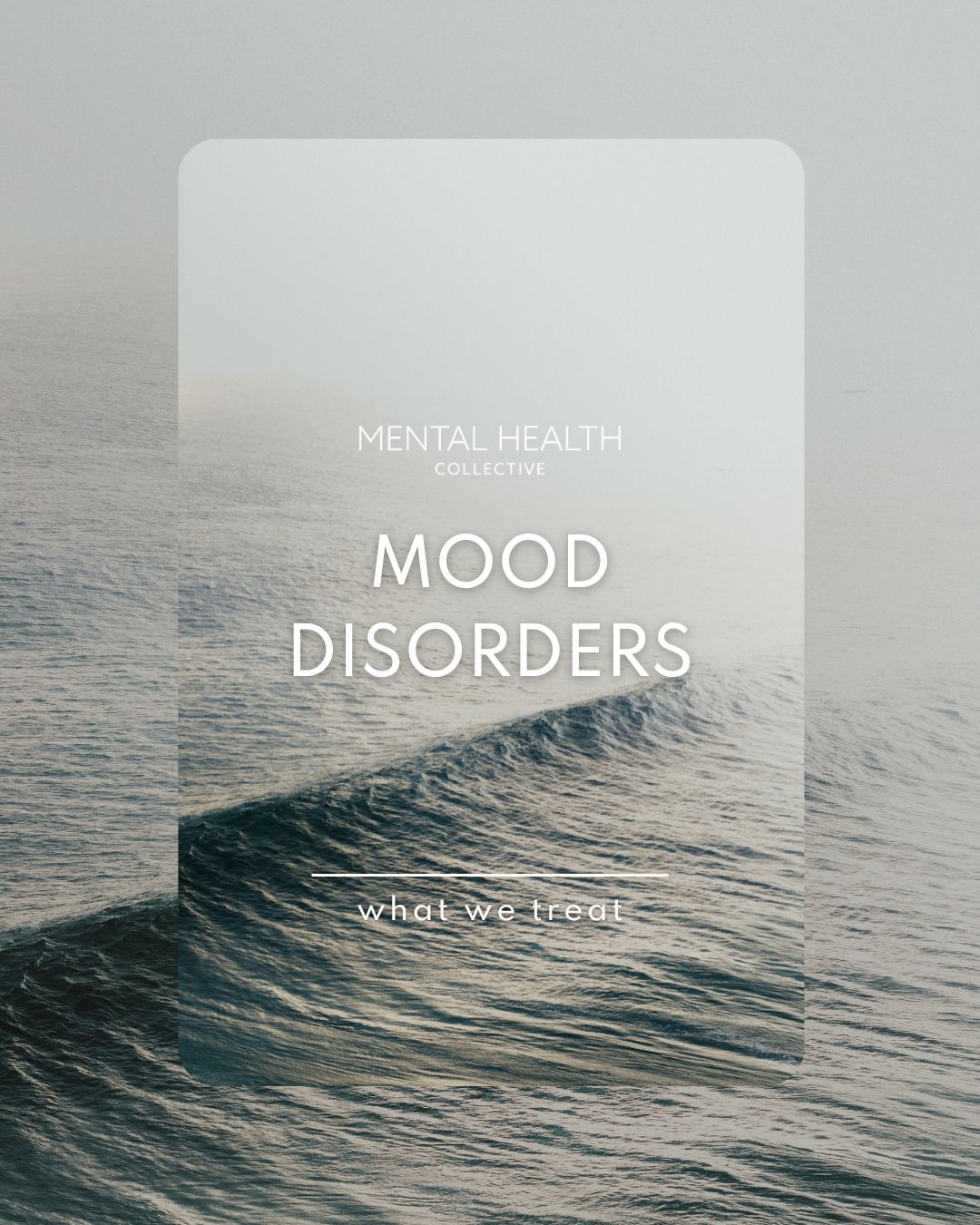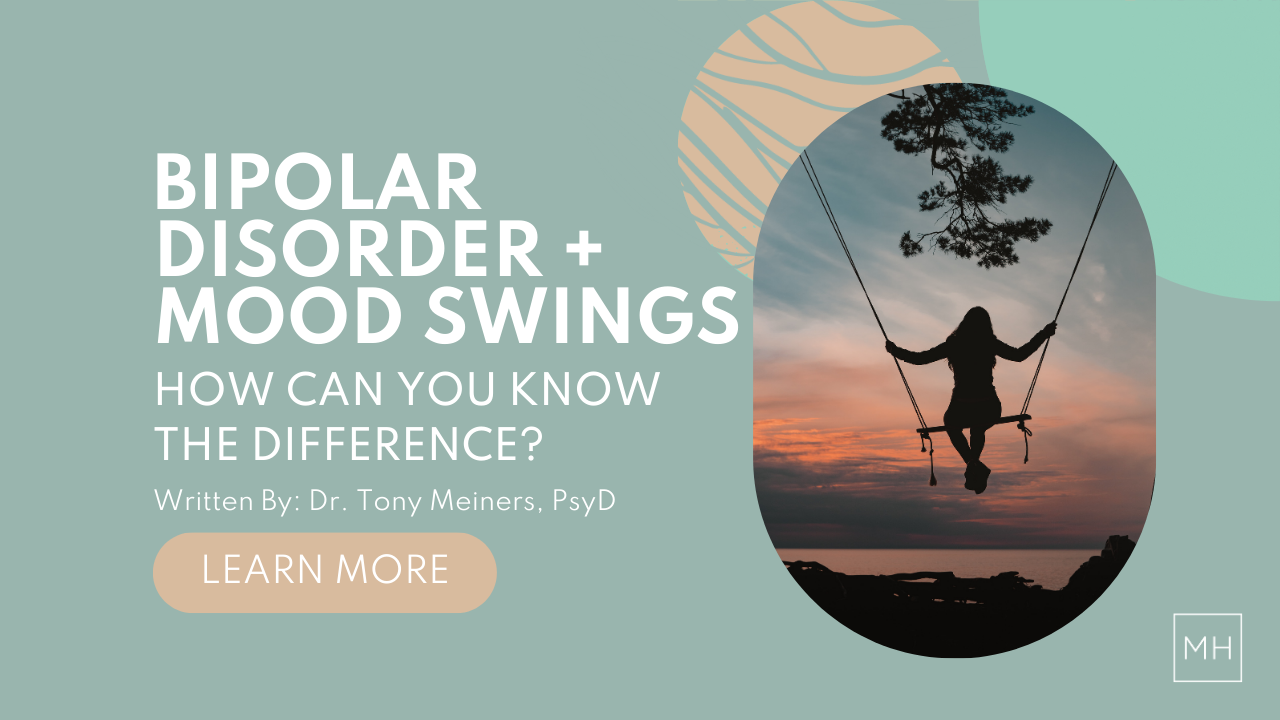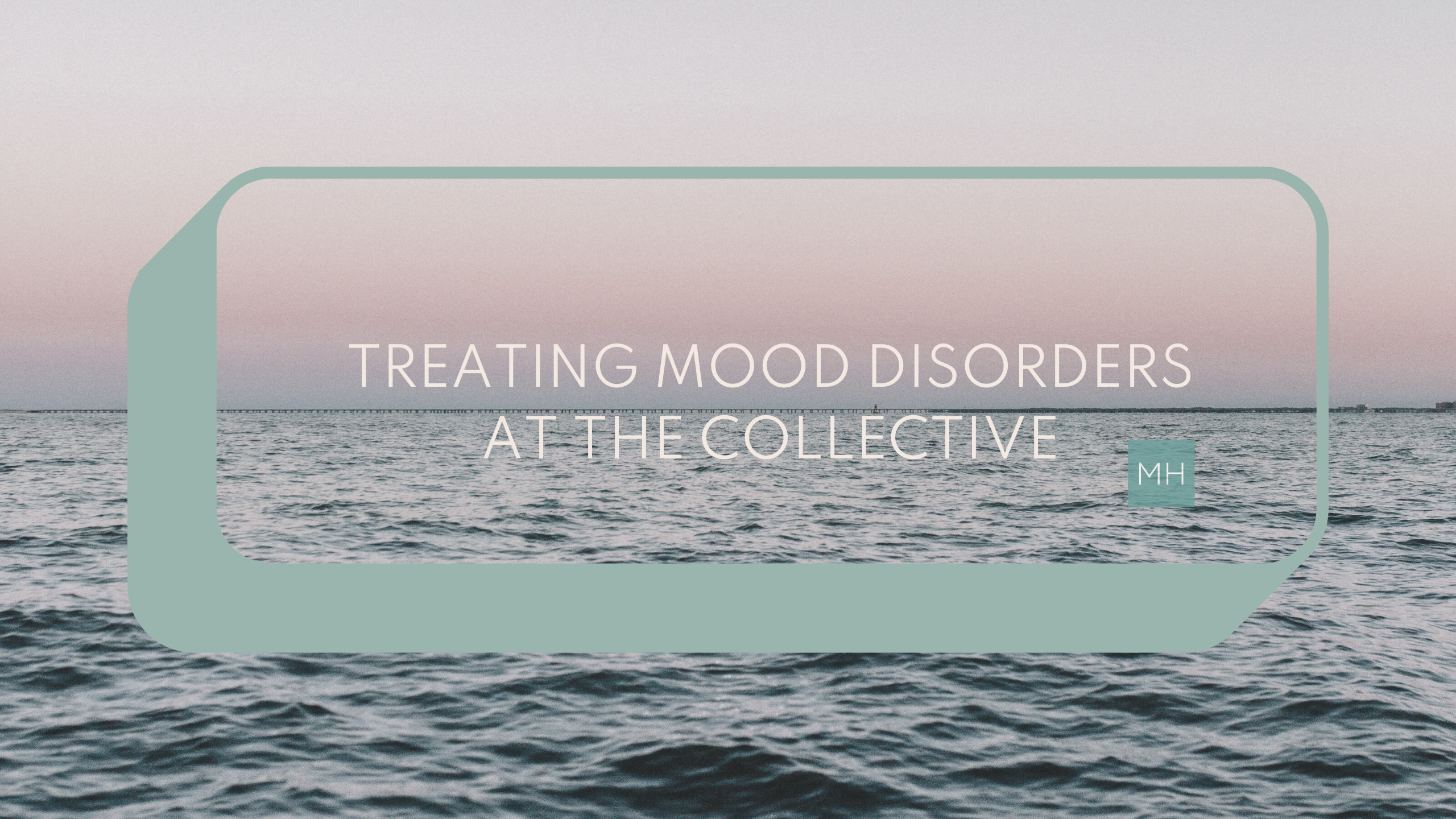WHAT ARE MOOD DISORDERS?

Mood Disorders represent a category of mental health conditions where the primary symptom or challenge is in maintaining a stable emotional state. Mood disorders are very common, affecting almost one in five individuals at some point during their lives. Women tend to be more affected by mood disorders than men.
The most common types of mood disorders are depressive disorders and bipolar spectrum disorders.
Depressive Disorders
Specific examples of depressive disorders include:
- Major depression
- Persistent depressive disorder (also called dysthymia)
- Post-partum depression
- Seasonal affective disorder.
Depression can also be caused by substance use, or underlying medical conditions.
Symptoms of Depression
How do you know if you, or someone you love, is suffering from a depressive disorder? The main symptom is a persistent low mood that lasts for at least two weeks. Low mood will often be accompanied by:
- Changes in appetite, sleep, energy, motivation, & concentration
- Thoughts of death and hopelessness
- Poor self-esteem
These symptoms, when severe enough, can significantly impair functioning, making it difficult to work, go to school, exercise, socialize, and participate in enjoyable activities.
Bipolar Spectrum Disorders
Specific examples of bipolar spectrum disorders include:
- Bipolar I Disorder
- Bipolar II Disorder
- Cyclothymic Disorder.
In bipolar spectrum disorders, an individual’s mood fluctuates between periods of low mood, and periods of extremely elevated or irritable mood, often referred to as hypomania or mania. These mood fluctuations can be accompanied by symptoms such as grandiose thinking, impulsivity, decreased need for sleep, and excessive energy.
The exact cause of mood disorders is unknown, but is thought to be a combination of genetic vulnerability, along with other biological, psychological, and social factors. When mood disorders begin to impact one’s ability to function, it is important to seek treatment, as treatment is available, and can help affected individuals with symptom relief and functional recovery.
Depression and Bipolar Disorder Respond Well to Treatment
At The Mental Health Collective, we recognize that each individual experiences mood disorders differently, and therefore, the treatment also needs to be highly individualized. It can take time to find the right medications and therapeutic modalities for each person, and also time for them to work. The prognosis for recovery is best when patients are closely monitored and supported during treatment, and a thoughtful, comprehensive, and integrative treatment plan is implemented. This is why we’ve created a comprehensive and state-of-the-art treatment center for mood disorders in Newport Beach, California.
The treatment plan for mood disorders at The Mental Health Collective begins with a comprehensive bio-psycho-social assessment by a board certified psychiatrist and a licensed psychologist. Extensive psychological testing is also completed for patients who have struggled with treatment resistant mood disorders.
After the initial assessment period, an integrative and individualized treatment plan is implemented. This includes appropriate medication management, as well as individual, group, and family therapy. In addition to medication and therapeutic interventions, we also incorporate integrative treatment modalities such as yoga, exercise, nutrition, mindfulness practices, journaling, massage therapy, and art.
This integration is the foundation of our functional recovery model, which helps each patient go beyond symptom relief, and live a life closely aligned with their core values and goals.
DO YOU HAVE A QUESTION?
Send our team a message or call 888.717.9355

